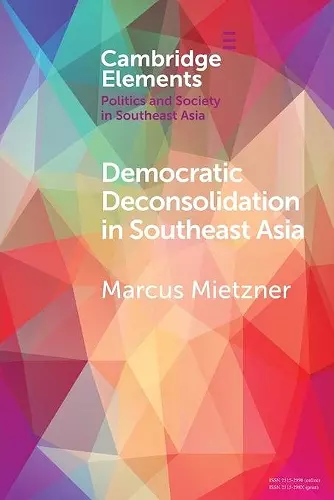Democratic Deconsolidation in Southeast Asia
Format:Paperback
Publisher:Cambridge University Press
Published:26th Aug '21
Currently unavailable, and unfortunately no date known when it will be back

Explains the failure of democratization efforts in Southeast Asia, and why have autocracies proved so resistant to democratic opening?
Since the mid-2000s, the quality of democracy around the world has been in decline, and Southeast Asia is no exception. This Element analyzes the extent, patterns and drivers of democratic deconsolidation in the three Southeast Asian countries that boast the longest history of electoral democracy in the region: Indonesia, the Philippines and Thailand. While the exact deconsolidation outcomes differ, all three nations have witnessed similar trends of democratic erosion. In each case, long-standing democratic deficiencies (such as clientelism, politicized security forces and non-democratic enclaves) have persisted; rising wealth inequality has triggered political oligarchization and subsequent populist responses embedded in identity politics; and ambitious middle classes have opted for non-democratic alternatives to safeguard their material advancement. As a result, all three polities have descended from their democratic peaks between the late 1980s and early 2000s, with few signs pointing to a return to previous democratization paths.
ISBN: 9781108468954
Dimensions: 230mm x 150mm x 5mm
Weight: 140g
86 pages